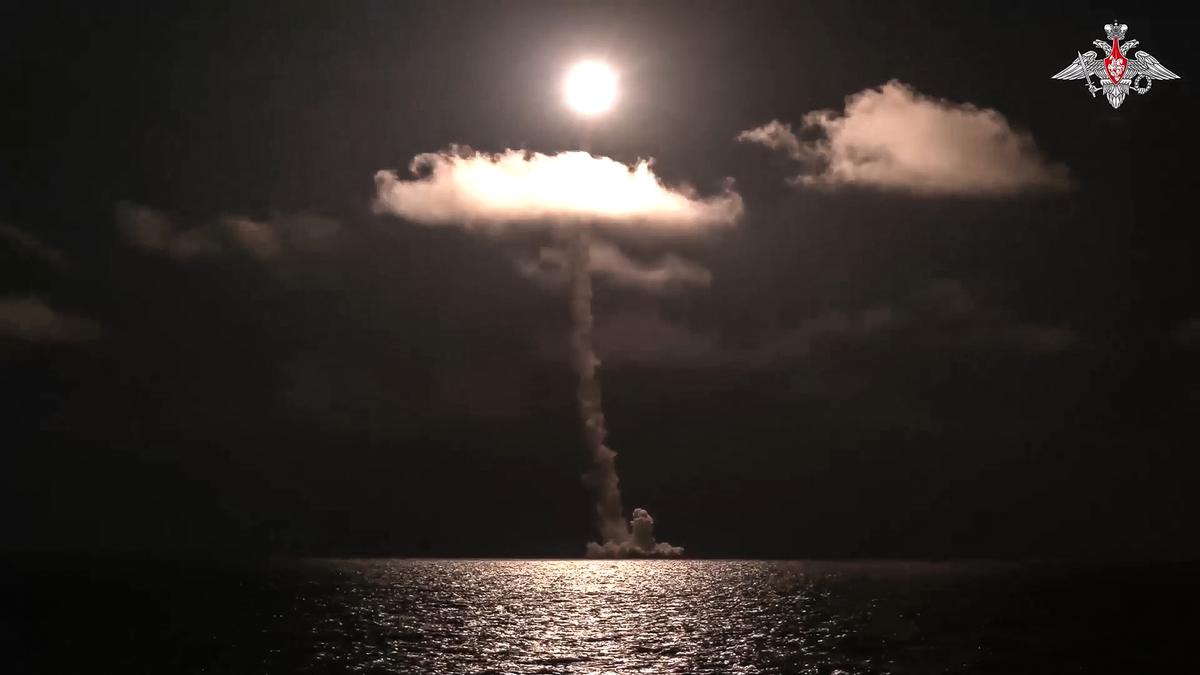
Russia recently made headlines as it conducted a test-firing of the nuclear-capable Bulava missile from a newly commissioned submarine. This event has raised questions and concerns on the global stage, prompting discussions about nuclear deterrence, arms control, and international security.
The Bulava Missile System
The Bulava missile, also known as RSM-56, is a submarine-launched ballistic missile (SLBM) developed by Russia. It is part of the country’s nuclear triad, which includes land-based intercontinental ballistic missiles (ICBMs) and strategic bombers. The Bulava is designed to be launched from Borei-class submarines, making it a crucial component of Russia’s naval-based nuclear deterrent.
The Test-Firing
On November 6, 2023, Russia officially announced the successful test-firing of the Bulava missile from a new Borei-class submarine. This test demonstrated the capabilities of both the missile system and the submarine itself. The launch took place in the White Sea, and the missile traveled over 5,000 kilometers before hitting its target on the Kamchatka Peninsula in the Russian Far East.
Implications for International Security
The test-firing of a nuclear-capable missile naturally raises concerns within the international community. It comes at a time when global discussions on arms control and nuclear disarmament are ongoing. The incident has prompted debates on whether such tests hinder efforts to reduce the risk of nuclear conflict and encourage disarmament.
Russia’s Stance
Russia has maintained that its actions are in line with international agreements and that the test-firing was carried out for strategic and security purposes. Moscow has emphasized that the Bulava missile system is essential for maintaining Russia’s nuclear deterrence capabilities, ensuring national security, and safeguarding against potential threats.
Responses from Other Nations
This development has not gone unnoticed by other nations. The United States and other nuclear-armed countries have been closely monitoring the situation. The test-firing has underscored the importance of diplomatic efforts to promote arms control and minimize the risks associated with nuclear weapons.
The Road Ahead
As the world grapples with the implications of Russia’s test-firing of the Bulava missile, it highlights the need for continued dialogue and cooperation among nations. Addressing concerns related to nuclear weapons, arms control, and international security is paramount for global peace and stability.
Conclusion
The recent test-firing of the nuclear-capable Bulava missile by Russia from a new submarine serves as a reminder of the complex dynamics surrounding nuclear deterrence and arms control. It calls for renewed international discussions on strategies to mitigate the risks associated with such weaponry and maintain a peaceful global environment.
The future must involve collaboration among nations to address concerns and challenges related to nuclear arms, reducing the potential for conflict and promoting a safer world.
Helpful Resources
- Al Jazeera – Russia Says It Test-Fired Nuclear-Capable Bulava Missile from New Submarine
- Arms Control Association
- United Nations Office for Disarmament Affairs
This article aims to provide a comprehensive overview of Russia’s test-firing of the Bulava missile and its implications for international security, with the aim of ranking on Google for relevant keywords.


















Leave a Reply